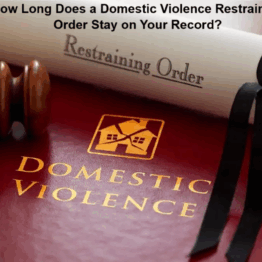Many of my clients believe that you must physically attack a spouse or partner to be liable for domestic violence. This is a common misconception. First, the alleged victim need not be a spouse or dating partner for domestic violence laws to apply. See our prior Blog entitled Who can be liable for “domestic violence” in Nevada? for a better understanding of the relationships that trigger domestic violence charges. Next, although a physical attack (“battery”) is the most common act underlying a domestic violence charge, there are many acts that constitute domestic violence that does not involve a battery or any touching at all. Specifically, the following acts can result in a charge being enhanced to constitute domestic violence: a battery, an assault, compelling the other person by force or threat of force to perform an act from which the other person has the right to refrain or to refrain from an act which the other person has the right to perform, a sexual assault, a knowing, purposeful or reckless course of conduct intended to harass the other person (stalking, arson, trespassing, larceny, destruction of private property, carrying a concealed weapon without a permit, injuring or killing an animal, etc.), a false imprisonment, an unlawful entry of the other person’s residence and/or forcible entry against the other person’s will if there is a reasonably foreseeable risk of harm to the other person from the entry.
While it should be obvious that locking a loved-one in a closet (false imprisonment) can constitute domestic violence, there are many less egregious acts that can qualify as domestic violence that is far less obvious. For instance, kicking your own door in during an argument with your significant other could qualify as domestic violence. Repeatedly destroying a significant other’s personal property during arguments (throwing items against the wall, pouring liquid on electronics, etc.) could qualify as domestic violence. Although I got the domestic violence charge dropped in a recent case, a client of mine was charged with domestic violence based only on eyewitness testimony that he kicked in his apartment door, chased his significant other out of the apartment and then attempted to pull the couple’s child away from the resisting mother. There was no allegation that he touched her in any way.
Once the underlying domestic relationship has been established between a defendant and a “victim” (a pre-condition for any domestic violence charge – see our previous Blog on this issue), there are countless acts that can be enhanced to domestic violence charges. If anger, aggression or force is evident coupled with a determination that one of the individuals is the “primary aggressor,” law enforcement will make an arrest and the arrestee will most likely be charged with an act of domestic violence.







